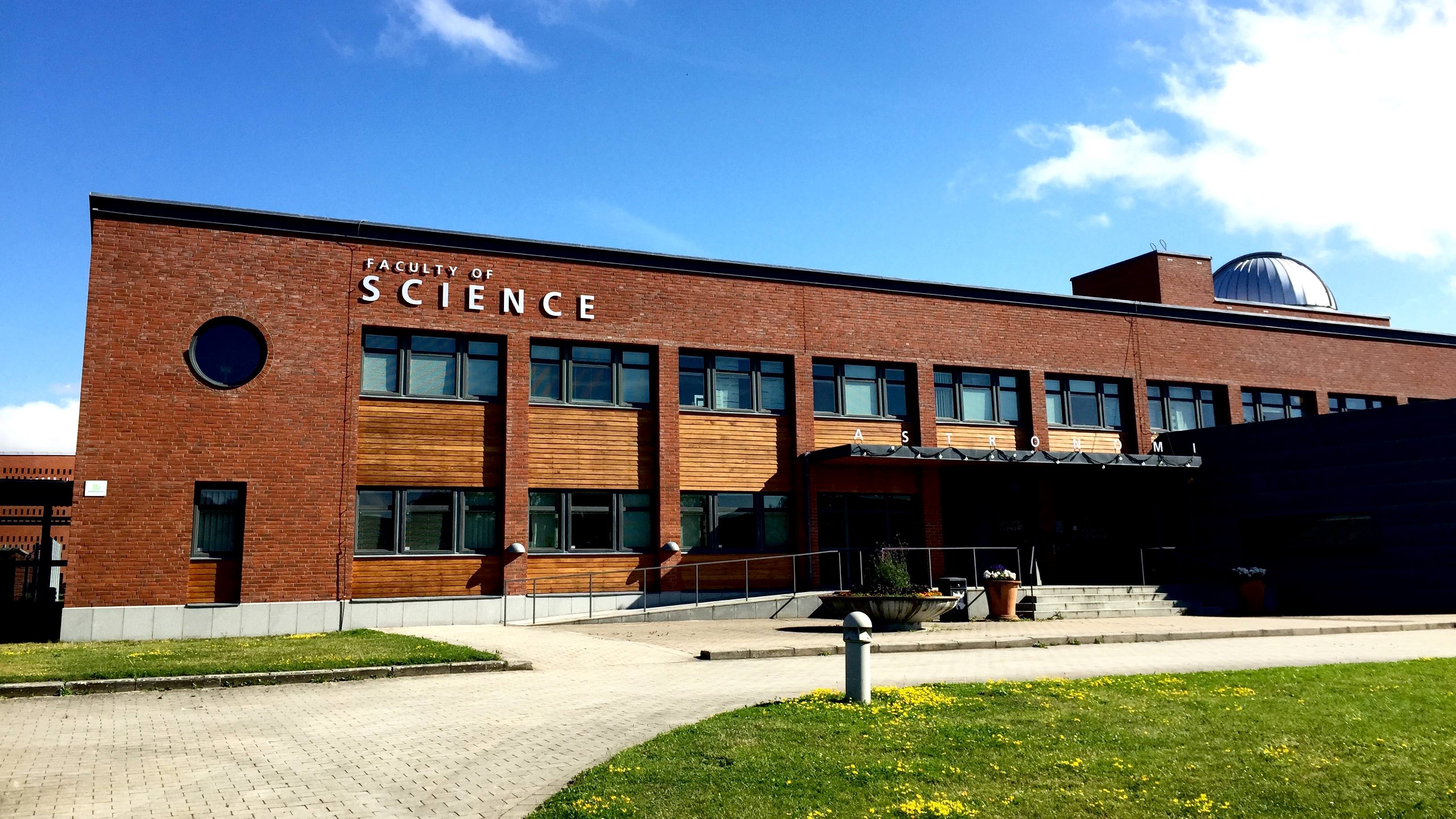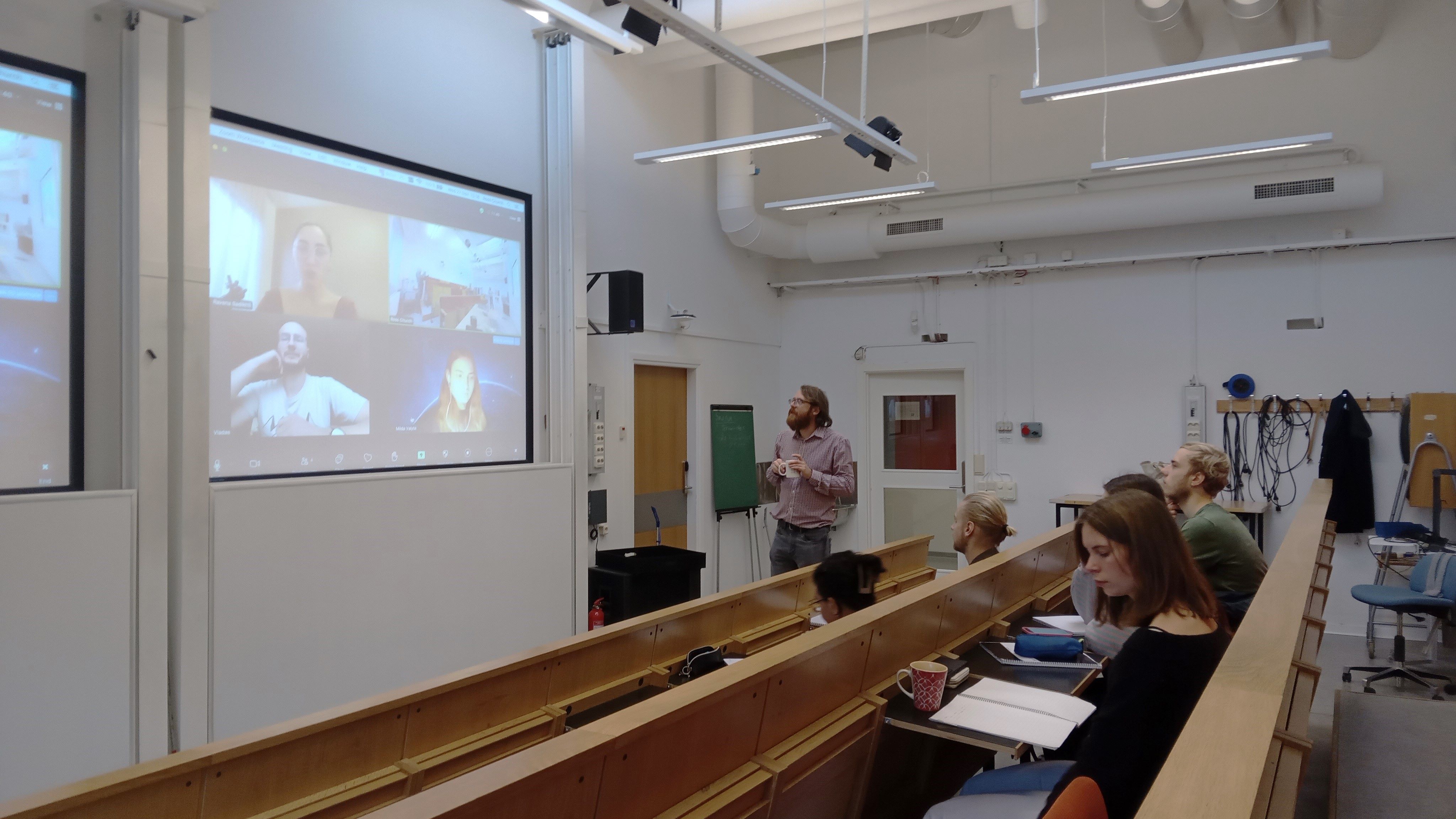Dr. Carlos Viscasillas Vázquez, Vilnius University, Faculty of Physics, Institute of Theoretical Physics and Astronomy (ITPA), researcher undertook an academic visit to Lund University as part of the Erasmus+ for Teaching program.

Photo by Carlos Viscasillas Vázquez.
“The main objective of this visit was to enhance the “Evolution of Stars” course for master’s students in astrophysics at Vilnius University by collaborating with Dr. Ross Church, who teaches the same subject to master’s students at Lund University. This exchange aimed to strengthen academic ties, integrate innovative teaching methods, and update the curriculum with the latest advancements in stellar evolution”, said Carlos Viscasillas Vázquez.
During the visit (November 27 to 30), Dr. Viscasillas participated in joint activities designed to enrich the learning experiences of students from both institutions. Among the highlights was a Problem-Based Learning (PBL) exercise where students divided into teams analyzed the properties of a stellar collision product. The exercise was conducted simultaneously in person at Lund and remotely with Vilnius students, showcasing the effective use of digital technologies to foster collaborative learning across borders.

Lund University. Source: lundsnaturvetarkar.se
Another key moment of the visit was a presentation by Vilnius University students—Milda Valytė, Ravana Sadikhli, and Vladas Šatas—on the MESA stellar evolution code. “The presentation was conducted remotely for the Swedish students, who responded with great enthusiasm, asking many questions that led to a lively and engaging discussion. This interaction was particularly valuable as it not only showcased the expertise of both groups of students but also highlighted the benefits of bringing together students from different universities studying the same subject”, explained Carlos Viscasillas Vázquez.

Presentation by Vilnius University students. Photo by Carlos Viscasillas Vázquez.
For Dr. Viscasillas, this experience was especially meaningful as he is teaching for first time the “Evolution of Stars” course. “Observing how the same subject is taught at Lund University provided a unique perspective and valuable insights into different teaching approaches. The interaction between students from Vilnius and Lund was incredibly enriching, and learning firsthand how the same course is approached at another university has been an invaluable experience”, Dr. Viscasillas remarked.
These activities strengthened academic connections between the two universities and equipped students with essential problem-solving skills and computational competencies. The collaboration also laid the foundation for future joint projects, student exchanges, and reciprocal visits, which will further enrich the academic environments of both institutions.
This visit underscores Vilnius University’s commitment to academic excellence and fostering a dynamic international community, preparing students to become future global scientists.
